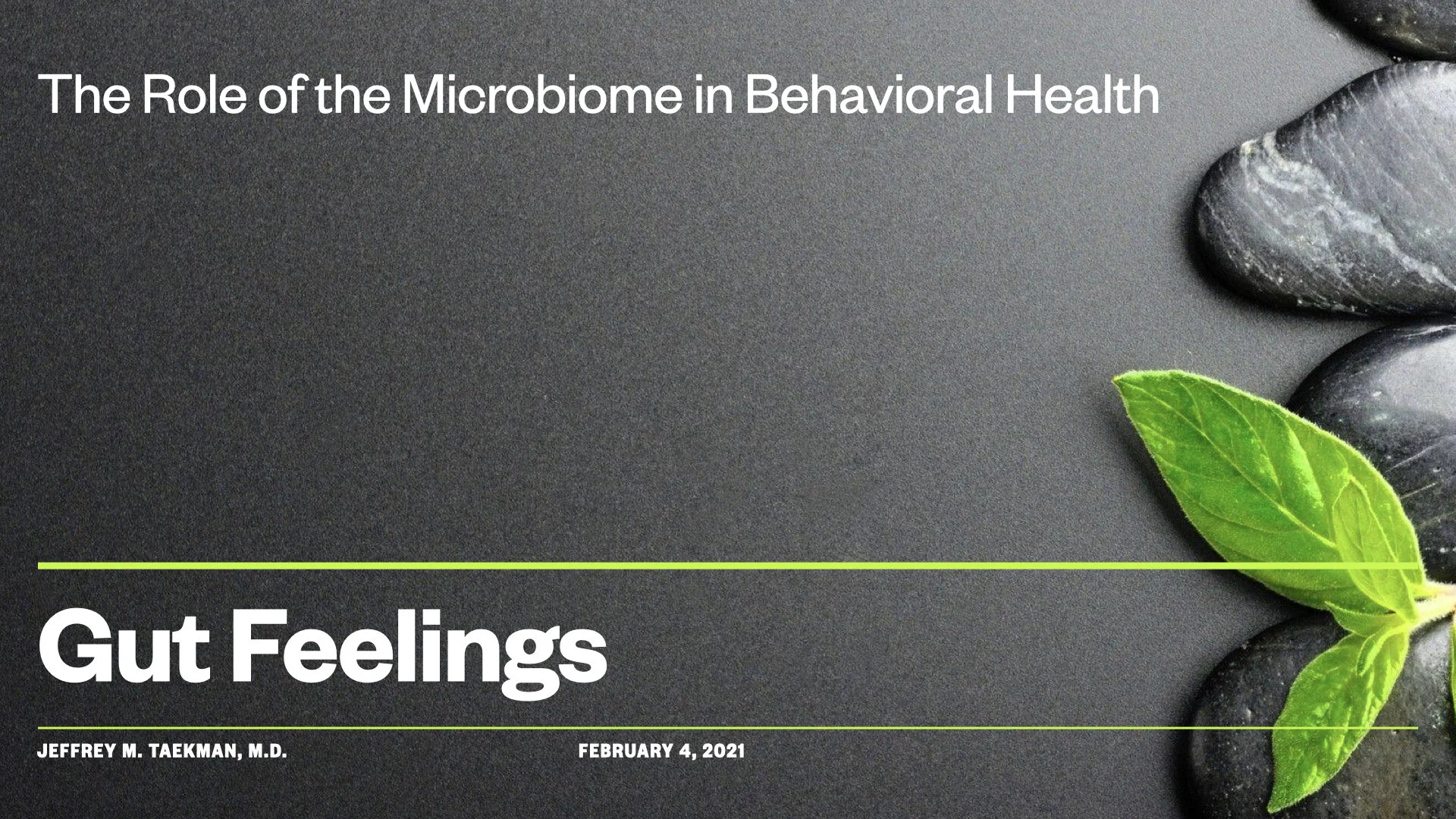Integrative medicine can significantly impact health and wellness before, during, and after surgery. Although the impact of integrative medicine is significant, I'm particularly interested in the effects of food and the microbiome in the perioperative period.
Read MoreA lecture I gave last week.
Read MoreAnxiety in the general population has been increasing for years. Add the fear, social isolation, economic impact, and disruption to our routines that go along with a global pandemic, and we have a real problem on our hands. And then there's the comfort food we're eating. Ultra-processed diet is associated with anxiety and depression. The systemic inflammation is thought to at least partially involve the microbiome.
Read MoreObesity is a global epidemic and is far more prevalent in countries that adopt Western patterns of eating. Western patterns of eating include highly processed foods with lots of sugar and fat and the removal of fiber. The U.S. Department of Agriculture (USDA) defines processed food as one that has undergone any change to its natural state
Read MoreAn article in the New York Times called attention to a recent study that investigated the biochemical / molecular changes of the body with exercise. The study, published in Cell, used multi-omics to catalog and quantify over 9000 different molecules that changed with exertion.
Read MoreAn essential skill for evaluation of wellness claims is critical reading. The Farnum Street article, nicely summarizes the things you should be aware of when reading scientific information.
Read MoreAlthough many dismiss intermittent fasting as a fad, there is a mounting collection of research that demonstrates a bevy of benefits to this pattern of eating.
Last week, the review article, Effects of Intermittent Fasting on Health, Aging, and Disease, appeared in the New England Journal of Medicine. The review covers the biochemistry of fasting, the impact of IF on stress resistance, IFs effect on health, disease and cognition, as well as clinical applications of time-restricted eating.
The evidence for fasting is becoming so compelling; it is likely intermittent fasting will find its way into doctor's recommendations for maintaining a healthy lifestyle. If you want to give it a try, most find it i
Read MoreA recent article in Science News, Personalized diets may be the future of nutrition. but the science isn't all there yet, got me thinking about obesity and diabetes. These diseases are often, but not always, linked.
Obesity is a worldwide epidemic affecting about one-quarter of the world's population. Obesity is associated with a wide range of chronic diseases, including cardiovascular disease, cancer, and diabetes. Diabetes is the leading cause of death worldwide, affecting 422 million people. In the US, in 2012, the total estimated cost of diabetes in the United States was $245 billion.
Read MoreA new study suggests taking hypertension medicines at bedtime results in better blood pressure control as well as a decreased risk of cardiovascular and neurovascular events (heart attack and stroke).
The [study](https://academic.oup.com/eurheartj/advance-article/doi/10.1093/eurheartj/ehz754/5602478), published in the European Heart Journal, followed almost 19,000 patients over six years. They found that taking once a day blood pressure medications at bedtime was beneficial when compared to those that took their medicine in the morning.
Read MoreA healthy microbiome is a diverse microbiome. One of the substances up-regulated in those with the healthiest microbiomes is short-chain fatty acids (SCFAs). SCFAs influence gut health directly by acting as food for the cells lining the gastrointestinal tract and by tightening the junctions between cells, but SCFAs are also are increasingly associated with a wide range of systemic health benefits. These benefits include improved immunologic function, lower systemic inflammation, and anti-cancer effects. Individuals with the highest level of SCFAs tend to have the healthiest and most diverse gut flora.
Read More









